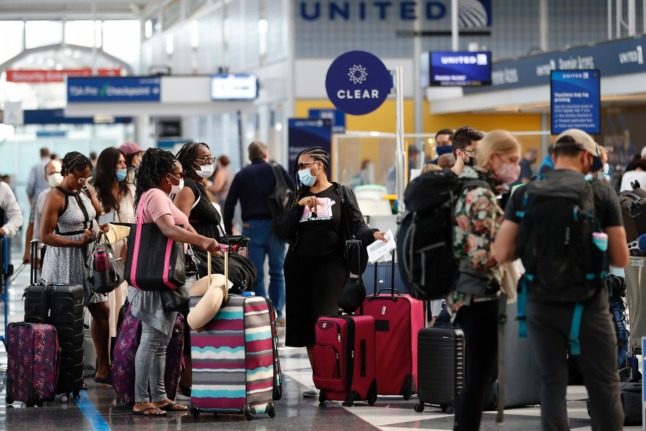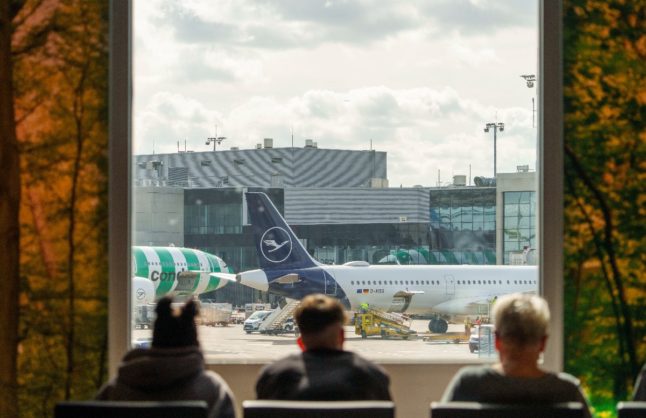Can Americans entry Germany for a tourist trip?
Yes! The German Government lifted travel restrictions for people coming from the United States on June 20th this year. It came following a recommendation from the EU commission to remove the entry restrictions for all arrivals from US and some other countries.
It means that travel to Germany from the US for all purposes, including tourism, is allowed again. Non-essential travel from the US to Europe was essentially banned in March 2020 when the pandemic hit.
Germany’s hotels and tourist spots are looking forward to the return of US visitors: around 2.2 million Americans visit the Bundesrepublik each year, making it the fourth most popular destination in Europe for them.
If you’re planning on taking a trip around Europe, check out the requirements for each country before travel.
READ ALSO:
- EU opens doors to return of American tourists after adding US to safe list
- What are the entry rules around Europe for American travellers?
What’s the risk status of the US in Germany?
Germany has a three-tiered warning system in place for countries and regions across the world, ranging from a basic ‘risk’ zone, to a ‘high incidence’ area – and the highest risk category is ‘virus variant area of concern’.
Different rules are required for arrivals from countries around the world depending on their risk status. As of June 13th, the US is not on any risk list. That means people arriving from the US do not have to register online before travel.
The 7-day incidence stands at around 33 infections per 100,000 people in the US. If the infection rate rises above 50 cases per 100,000, the US will move to the ‘risk’ category, meaning people will have to register online before travel and upload evidence of a negative Covid-19 test, proof of vaccination or proof of recovery of Covid within the last six months.
Keep in mind that countries are moved to the ‘high incidence’ list if they clock up more than 200 cases per 100,000 people. If variants of concern that aren’t already in Germany at a high level become widespread in a country, it can be moved to the ‘virus variant of concern’ category where travel is essentially banned. Those who are allowed in – like German residents and citizens – have to quarantine for 14 days and submit a negative Covid test before travel even if fully vaccinated.
Keep an eye on the RKI list of risk countries here as the situation can change quickly.
- How Germany’s latest rules on international travel affect you
- Germany relaxes travel rules for non-EU residents: What you need to know
Can I travel from the US to Germany even if I’m unvaccinated?
Unlike the rule for other non-EU countries where the focus is on allowing vaccinated passengers to enter, Germany is allowing unvaccinated people from the US to enter the country. But you will need to bring certain documents with you.
All unvaccinated air travellers aged six or older coming from the US must show a negative Covid test result before boarding the flight.
Both PCR tests and rapid antigen tests are accepted. PCR tests must be taken within 72 hours of arrival in Germany and antigen tests that meet the requirements must be taken 48 hours before entry.
READ ALSO: How can tourists and visitors in Germany get a Covid-19 test?
What about if I’m vaccinated?
If you can show proof of vaccination, you do not have to provide a negative Covid test before travel to Germany. That’s also the case if you can show proof of recovery from Covid (if you contracted the infection at least 28 days ago and no more than six months ago).
People are considered fully vaccinated on the 15th day after the last vaccine dose was administered. It must be a vaccine approved by the EMA. So that’s currently Pfzier/BioNTech, Moderna, AstraZeneca and Johnson and Johnson.
On entry to Germany, you need to show proof that you have been fully vaccinated on an official document issued by a recognised health authority in your country of residence.
It can be in written form (for example a CDC card) or digital form. The government says that a photo taken on a phone is not sufficient.
Don't Laminate Your CDC Vaccination Record Card — Here Are Three Protective Cases to Use Instead https://t.co/rbSeUwXAxV
— Travel + Leisure (@TravelLeisure) July 4, 2021
If you weren’t vaccinated in the US but are travelling form the US, these are the requirements:
The German government says the EU digital Covid pass or comparable proof of vaccination in German, English, French, Italian or Spanish must be presented upon entry to Germany. This certificate must include the following information:
- The personal data of the vaccinated person (at least first and last name plus your date of birth)
- The date/s of vaccination and number of vaccination doses
- The name of the vaccine (must be EMA-approved)
- The name of the disease against which the person was vaccinated
- The name and address of the person or institution responsible for vaccinating the person
- Confirmation in written or electronic form with the qualified electronic signature or qualified electronic seal of the person who carried out the vaccination; if for administrative reasons this is not possible, a suitable format such as a stamp or state symbols should be used to clearly identify the responsible person or institution.
Note that all travellers coming to Germany must also not have any Covid symptoms, regardless of whether they’re vaccinated or not.
What other documents do I need?
You will likely be asked to show photo ID with the proof of vaccination, recovery or test (as is the case for people in Germany when showing proof of inoculation or tests).
Keep in mind that the airline you’re travelling with may require certain information or documents (e.g. an additional Covid test even if you’re vaccinated) so check with the airline for the requirements before your trip.
What does the US say about travel to Germany?
This is also something that Americans really need to consider.
The Centres for Disease Control and Prevention (CDC) issues travel advisories for each country, with most countries in Europe ranked level 3, meaning travel isn’t advised, or level 4 such as Sweden, where Americans are advised not to travel at all.
Germany is ranked at level 3 for the moment so US citizens are not advised to travel here. We’ve no idea at the moment when that will change.
Are Europeans allowed into the US?
Currently the US is not reciprocating the offer of travel for Europeans coming the other way. Residents of the whole of Europe’s Schengen Area – 29 countries, city-states and micro-states, including Germany of course – as well as those in the UK and Ireland are still barred from traveling to the United States.
You are allowed to travel if you are a US citizen, or you spend 14 days before arrival in a country that is not on the Centers for Disease Control and Prevention’s prohibited list. Certain family members are also exempt.
However, there are requirements and recommendations for people returning to the US from abroad, including citizens. So make sure if you do travel you’re aware of the US or state specific advice or rules.
Do I need to obtain Germany’s digital Covid pass for travel in the EU?
No, you don’t need it.
At the moment there is no formal agreement between EU countries and the US (or any other non-EU countries) for fully jabbed people to receive a digital vaccination certificate.
Anecdotally we’ve heard that some people who have been vaccinated in the US can receive a digital vaccine certificate from a pharmacy in Germany – but this is at the discretion of the pharmacist and probably does not apply to tourists – only German residents.
READ ALSO: How I got Germany’s new digital CovPass with my US vaccination certificate
Are flights operating from the US?
Yes, but they could be more quiet than usual so the schedule may be reduced. Flights are more likely to be cancelled if there is an entry ban in force, such as from ‘virus variant areas’ (such as Brazil among others).
READ ALSO: Will it be possible to travel to Germany this summer?
You can find more information on the US Embassy in Germany site.
What’s going on in Germany at the moment? Are people worried about the Delta variant pushing up cases?
Yes – the 7-day incidence rate in Germany is just over 5 cases per 100,000 people right now so it’s still very low. But experts fear that the number of cases will be pushed up dramatically as we’ve seen in other countries including the UK.
It means that the race to vaccinate before the Delta variant manages to make its presence even more felt is on.
Aside from that though, German states have been relaxing Covid restrictions dramatically over the past month, with many events allowed again.
Masks are still mandatory, however, when travelling on public transport and in shops, and people are urged to keep distance from others at social events.
READ ALSO: ‘Stage zero’: North Rhine-Westphalia to scrap all contact restrictions from Friday



 Please whitelist us to continue reading.
Please whitelist us to continue reading.
UK is not on variant list. Article needs updating!
Thanks for spotting that, we’ve taken it out now.